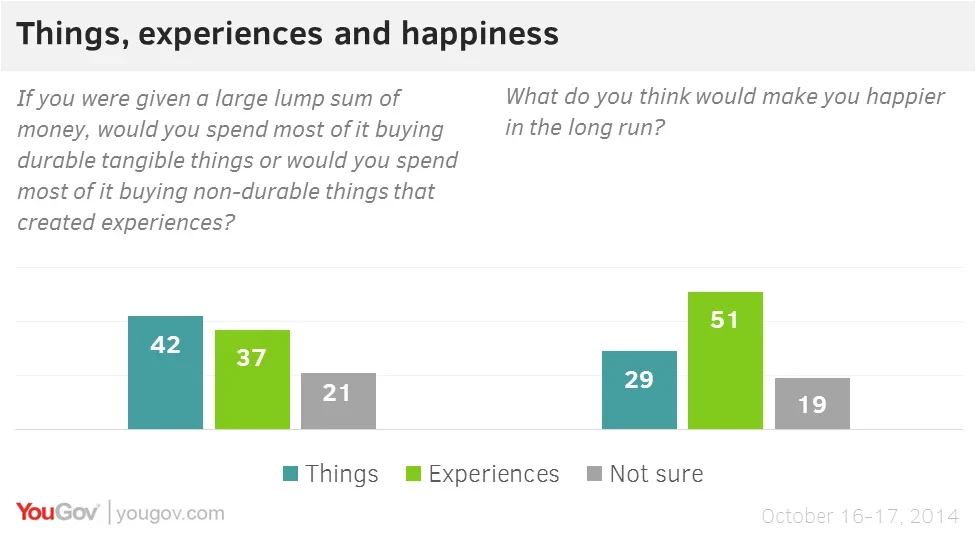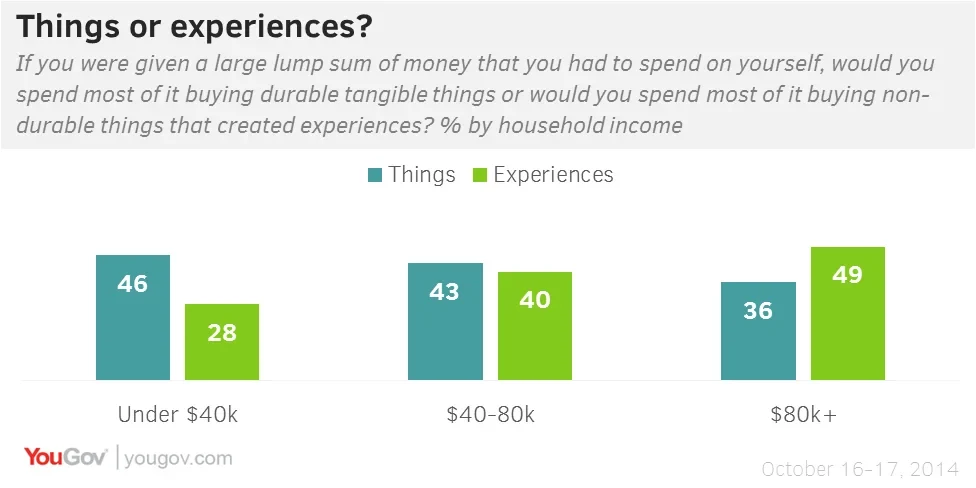Americans narrowly tend to say that they'd spend a windfall on buying things instead of experiences, even though they say experiences would be a better investment in life
In recent years it has become increasingly clear, thanks to psychological research, that "experiences bring people more happiness than do possessions". The anticipation of a long-awaited family camping trip, and the warm memories of the trip, will cause more happiness in the long-term than the decision to buy the new truck that got you to the campsite. Nevertheless, Americans especially tend to spend more of their money on large, durable possessions - the new car, the big house - than people in other countries, and consequently spends less on recreation and 'experiences'. The average British household, for example, spends a fifth of its money on recreation and alcohol, compared to only 8.4% of the family budget in the United States.
When YouGov asked the American public what they thought they would do if they suddenly received a large sum of money they had to spend on themselves, the responses were nearly evenly divided. Overall, 42% of Americans say that if they were given a large sum of money they would purchase durable things, while 37% say that they would put the money towards creating experiences. Despite this, most Americans (51%) say that putting the money towards creating experiences would actually make them happier in the long run. Only 29% say that buying things would be the route to long term happiness.

The largest divide on what to do with a lump sum is between low income and high income individuals. 46% of people in households with an income of less than $40,000 would buy 'durable tangible things' with a lump sum, compared to 36% of people in households whose income exceeds $80,000. The difference on buying experiences is even greater. Only 28% of people in under-40k households would buy experiences, compared to nearly half (49%) of people in the highest income households.

People in lower income households are more likely to say that buying 'things' will make them happier in the long run. 34% of people in households earning less than $40,000 say that buying durable items would make them happier in the long run, compared to 44% who say creating experiences would. Among people whose income exceeds $80,000, only 21% think that things would make them happier.
Full poll results can be found here.










